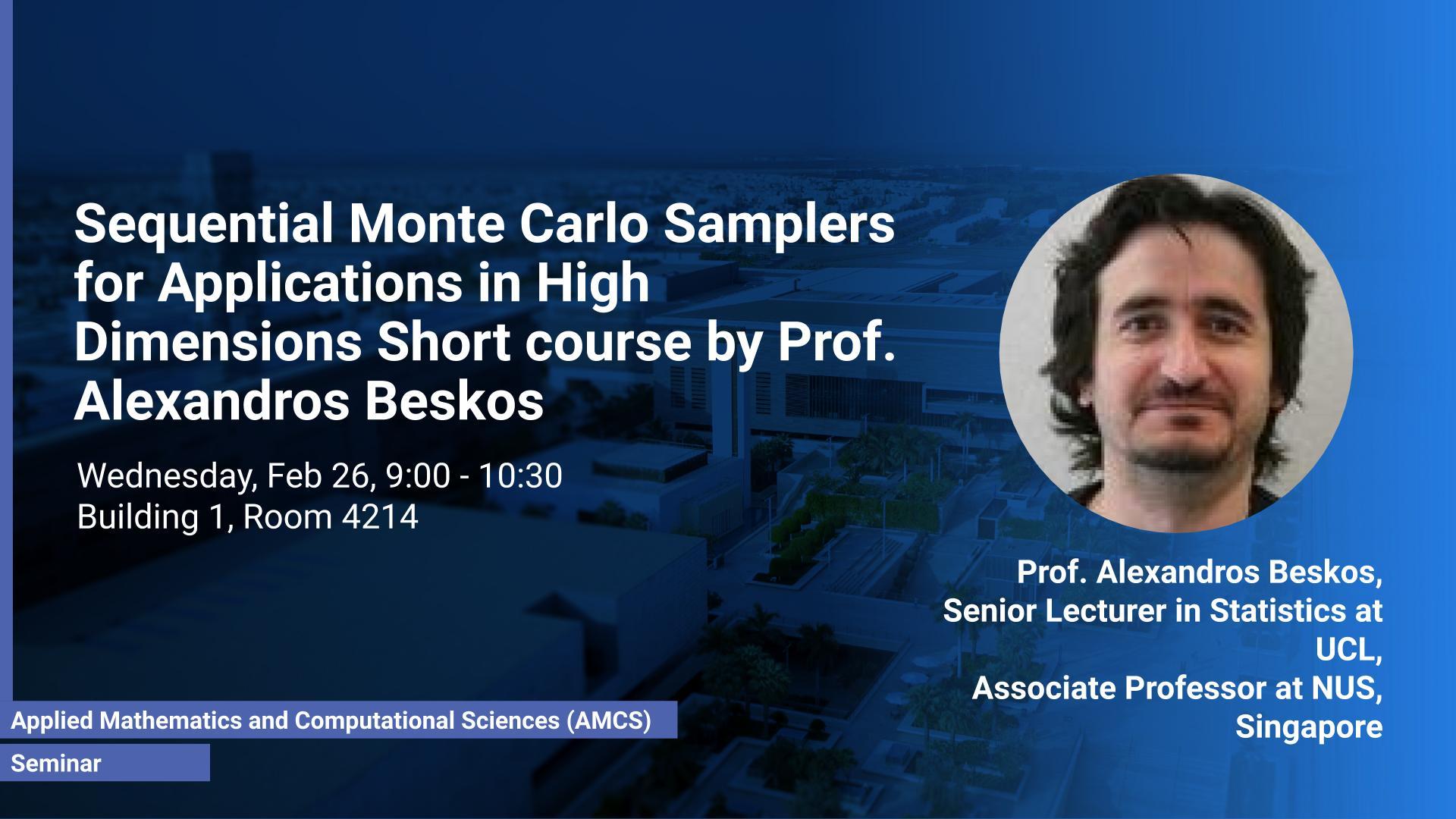Abstract
Sequential Monte Carlo Samplers for Applications in High Dimensions.
Sequential Monte Carlo (SMC) methods are nowadays routinely applied in a variety of complex applications: hidden Markov models, dynamical systems, target tracking, control problems, just to name a few. Whereas SMC methods have been greatly refined in the last decades and are now much better understood, they are still known to suffer from the curse of dimensionality: algorithms can sometimes break down exponentially fast with the dimension of the state space. As a consequence, practitioners in high-dimensional Data Assimilation applications in atmospheric sciences, oceanography and elsewhere will typically use 3D-Var or Kalman-filter-type approximations that will provide biased estimates in the presence of non-linear model dynamics. The talk will concentrate on a class of SMC algorithms and will look at ways to reduce the cost of the algorithms as a function of the dimension of the state space. Explicit asymptotic results will clarify the effect of the dimension at the properties of the algorithm and could provide a platform for algorithmic optimisation in high dimensions. Applications will be shown in the context of Data Assimilation, in a problem where the objective is to target the posterior distribution of the initial condition of the Navier-Stokes equation given a Gaussian prior and noisy observations at different instances and locations of the spatial field. The dimension of the signal is in theory infinite-dimensional - in practice 64x64 or more depending on the resolution – thus posing great challenges for the development and efficiency of SMC methods.
Brief Biography
2013-Today: Senior Lecturer in Statistics at UCL and Associate Professor at NUS.
2008-2013: Lecturer in Statistics at UCL.
2005-2008: Post-Doc in Mathematics Institute and Department of Statistics, at University of Warwick.
2002-2005: PhD under the supervision of Professor Gareth Roberts
Refreshments: Available @ 08:45 am.

